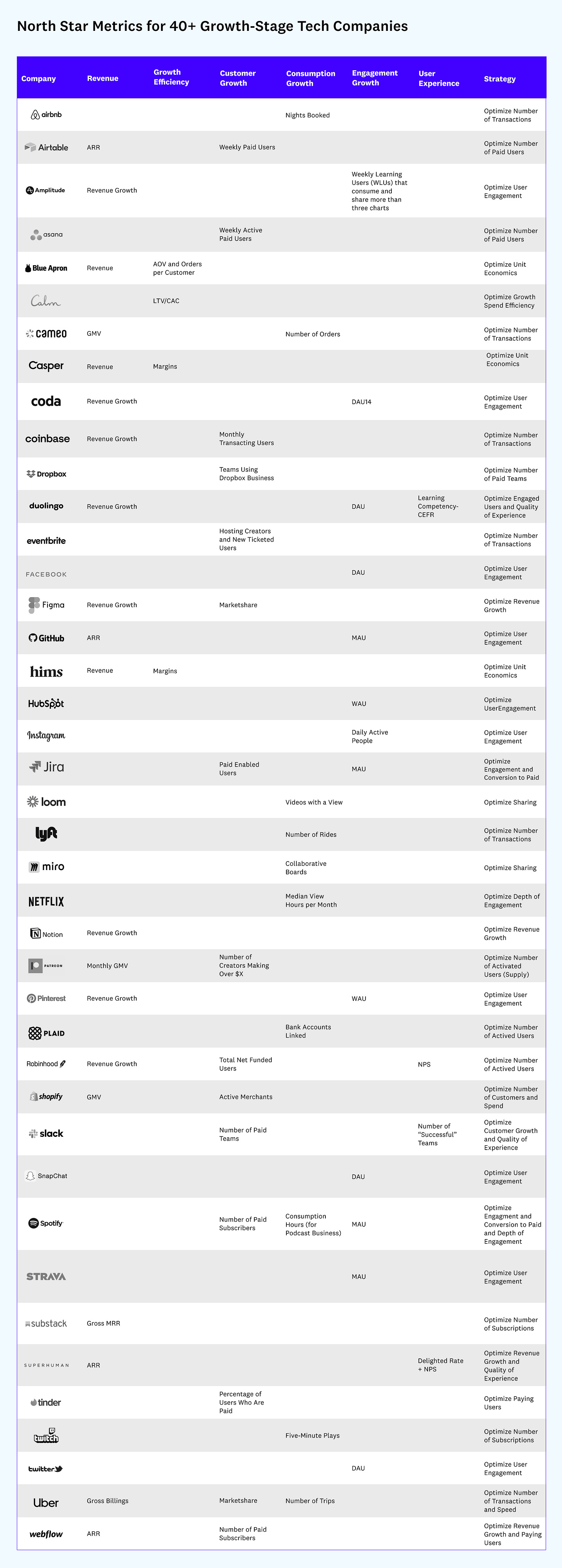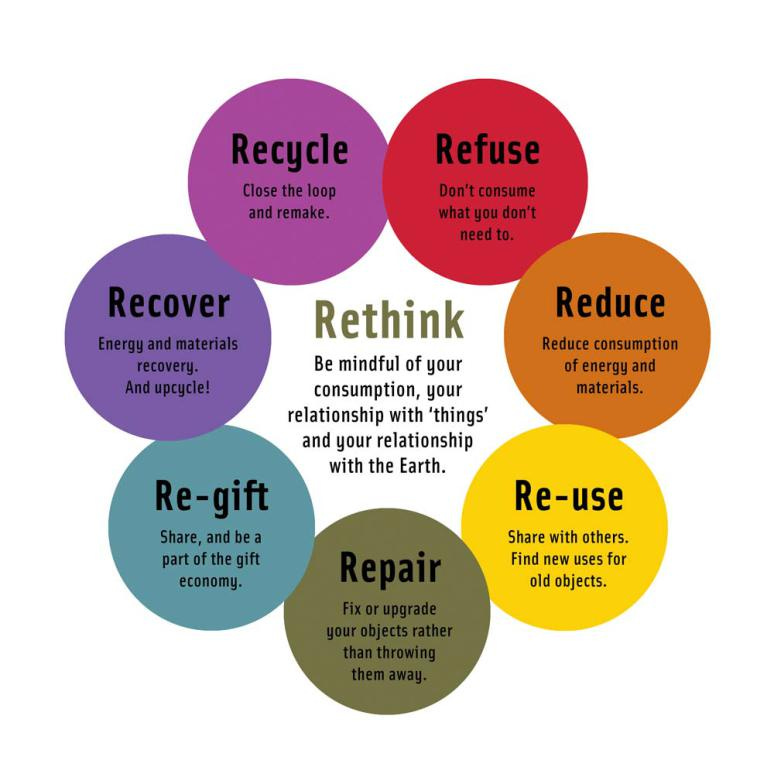The Price of Profit: How Business Success Can Harm Our Health and Happiness
Lead a more fullfilling life while creating a sustainable future for both individuals and society.
Hi there, it’s Niels. 🤗 Welcome to my newsletter. This newsletter helps with the creation of valuable software solutions, making better software investments, and improving the developer experience. Questions? Ask them here.
🗞️ In This Edition
Ready for a mental workout? Buckle up, because this edition is packed with thought-provoking topics that have kept my brain buzzing for months! Let's dive into:
The battle between corporations and our own well-being
Discovering my purpose with the mysterious Ikigai Framework
Navigating life and business with the help of North Star Metrics
Uncovering the root cause of climate change and what we can do about it
Technological advancements: a tool that cuts both ways, capable of fostering either positive or negative outcomes.
The path to sustainability through a focus on well-being
If these subjects light your fire, then keep reading and join the journey!
It's been a while since I hit the publish button. I've been taking some time off during the holiday period to spend with friends and family. Last week, I also enjoyed some winter sun with my family in Malaga.
During my time away, I took the opportunity to step back and examine the bigger picture. I reflected on what is most important to me and tried to discover my purpose. Without a clear mission and vision, it is impossible to develop a personal strategy and set goals that will lead to fulfillment and bring more focus to life. Doing this also helps with eliminating distractions and becoming more productive as I work towards my long-term goals.
During my quest for personal fulfillment, I discovered significant disparities between human behavior, economic development, technological advancements, and overall well-being.
Profit vs. Well-Being
Most companies often chase the almighty dollar, ignoring the long-term well-being of both people and our planet.
Sure, their products might give us a temporary high, but they also have the sneaky tendency to bring us down.
And don't even get us started on the climate change problem! We're just not feeling the urgency yet... but that doesn't mean we shouldn't be!
By taking the time to understand what brings us genuine happiness and fulfillment, we can reduce our carbon footprint while enhancing our well-being. No more relying on products with sneaky negative side effects.
It's time to embrace our shared responsibility and make conscious choices for a better future.
I wrote this article because I wanted to find more meaning in life. I'll show you how you can do the same.
The Ikigai Framework
The Ikigai framework helps to find out what you are passionate about, what you are skilled at, what is needed by the world, and what you can be rewarded for. It’s a way to find out what brings you fulfillment.
The Ikigai framework is represented by a Venn diagram with four overlapping circles: what you love, what you are good at, what the world needs, and what you can be paid for.
The intersection of these four circles represents your Ikigai, or your purpose in life. The following sketch shows my personal result. It’s a fun activity, you should try it for yourselves.
I’ve set some new and exciting personal leisure goals that align with what I love and bring me energy. These include both travel plans and sports challenges.
In a couple of weeks, I'll be hiking the GR 131 with three of my closest friends in Tenerife. In April, I'll be going on a three-week journey with my girlfriend to the eco-friendly and biodiverse country of Costa Rica. We’re both nature lovers so it's going to be a paradise for us.
Additionally, I'll be running the half marathon in Ghent at the end of March. It's good to have goals to work towards.
I also love creating a positive impact. The discussions I had last year with business leaders have proven that the gap between business leaders and technology teams is real and rather large. My product management and technology skills help to bridge this gap and make a positive impact.
BUT product management and technology are powerful tools that can be harnessed for either good or bad to achieve what's truly important to me and to this world.
North Star Metric
A North Star Metric is the single metric that best captures the core value that your product or service delivers to customers.
A North Star Metric is a well-known concept in the field of product management. Most of them are tied to maximizing profit.
Some examples are increasing revenue, customer growth, and consumption growth.
Your North Star is your strategy and your strategy is your North Star.

I believe prioritizing profit conflicts with creating a sustainable future and our personal well-being.
My personal North Star is to foster long-term human well-being. This includes building towards a sustainable future.
Navigating a Path to a Sustainable Future
In my previous article, I have been writing about how to prioritize what to build next for your product. The approach I discussed there enable companies to avoid wasting money, time, and talent. It also helps you to innovate more quickly that the competition. The systematic approach I provided focused on prioritizing what to build next based on customer value.
I also talked about solving big problems. I have defined it as follows:
A big problem is either:
a problem many people have
a very painful problem for a few people
something in-between the previous two
Climate Change
Climate change is the most pressing long-term issue facing humanity. If we want to ensure the well-being and survival of future generations, it is crucial that we prioritize the protection of the environment and reduce our impact on the natural world.
While our planet will ultimately survive and find a new equilibrium, it will be at the expense of human civilization.
It is imperative that we take immediate and decisive action to address this crisis before it's too late.
But most of us perceive it as an important problem that is personally not that urgent. However, it is an urgent and important problem for humanity.
Root Cause: Consumerism
The root cause of the climate change problem is consumerism and overconsumption.
I recommend this great article from Greenpeace. It explains why the circular economy alone is not going to save us all. We also need to slow the circular economy.
Innovative automation (like AI) technologies might enable companies to make industrial processes more efficient and sustainable. But even in a circular economy: if companies keep focussing on profit and growth, this will result in increasing the carbon footprint even more. We need to stop cycling more and more resources around faster and faster.
It’s necessary to:
slow the circular flow of using resources: re-use, repair, re-gift, recover, and recycle
close the loop by reducing production and consumption: refuse and reduce

The Battle Between Corporations & Our Well-Being
Our constant pursuit of fulfilling our needs and desires is leading to the rapid and unsustainable depletion of the planet's natural resources. Additionally, our current economic system, which prioritizes endless growth, is exacerbating this damage to the environment.

Most companies are for-profit companies. They create value for consumers and make a profit by doing so. A high return on investment is most often the main goal for their investors and shareholders. There are also nonprofit organizations. Their purpose is to create value for the community with no intention of earning a profit.
The idea of working for a non-profit organization or even founding one is certainly appealing, but I also believe that those who work to better the lives of others or the planet should be adequately compensated for their efforts. While monetary compensation is not the only form of recognition, it does provide the means to fulfill other needs and desires.
It is important to find a balance between rewarding good deeds and not becoming overly focused on financial gain.
It is one thing to believe in the cause of combating climate change, but making big personal sacrifices to do so can make the decision challenging.
Consumerism ≠ Well-Being
Our society's emphasis on consumerism encourages individuals to acquire an excessive amount of goods and services. The economy is driven by the constant buying and selling of products, leading to a focus on materialism and the acquisition of possessions. However, this often results in waste and harm to the environment. Many things that we buy, might bring us temporary pleasure, but it doesn’t bring us long-term happiness.
What we often desire, does not bring us any long-term happiness.
The Hedonic Treadmill
Research has shown that the acquisition of material possessions does not lead to long-term happiness. The hedonic treadmill theory suggests that as individuals acquire more wealth, their expectations and desires for material possessions also increase, resulting in a lack of permanent gain in happiness.

Happiness changes with good and bad events but goes back to normal quickly. People who win the lottery go back to being just as happy as before, and people with serious injuries like paraplegia and quadriplegia adjust and become just as happy as they were before. Only events from the last 2-3 months really affect our happiness. There are a couple of events that do affect our long-term happiness like widowhood and long-term employment.
The PERMA Model
Martin Seligman, the father of positive psychology, introduced a comprehensive model for well-being that goes beyond just chasing pleasure and material wealth (=hedonism).
The PERMA model encompasses all the key factors that contribute to true happiness, including Positive emotion, Engagement, Relationships, Meaning, and Accomplishment. This holistic approach provides a more fulfilling and satisfying path towards well-being, compared to the narrow focus of hedonism.
The different components of well-being according to the PERMA model:
Positive emotion (=Hedonism): This refers to experiencing positive emotions and feeling good.
Engagement: This refers to being fully absorbed and involved in an activity that you find meaningful.
Relationships: This refers to having strong and supportive relationships with others.
Meaning: This refers to having a sense of purpose and meaning in life, through activities or causes that are important to you.
Accomplishment: This refers to experiencing a sense of achievement and accomplishment through reaching personal goals.
Technology ≠ Well-Being
Technology is a double-edged sword.
Technology's impact on individuals' well-being can be both positive and negative.
The companies building digital technologies most often do not prioritize well-being. They prioritize profits for their shareholders.
Let’s revisit some of the North Star metrics I’ve shared before:
The strategy of social media companies like Twitter, Facebook, and Instagram measures success based on the number of daily active users.
Netflix measures success by the median view hours per month.
Companies like Facebook, Twitter, Instagram, and Netflix use AI to keep us engaged with their platform. They make it tempting so we'll spend more time there and they can make more money.
Feeling good from social media likes and comments may provide a quick thrill, but over time, it can actually harm our overall happiness. Watching too much TV takes away from pursuing goals that really matter.
But these companies and the AI algorithms don't care about our happiness, it just wants us to spend more time on their platform.
Be aware however that while these platforms offer valuable benefits, they do not prioritize your well-being.
Disruptive innovations like television, social media, and AI are prime examples of how technology can lead to positive and negative outcomes for our well-being. These advancements have brought about many benefits, but also raise the question of whether they have truly led to an improvement in the quality of life.
Double-Edged Sword Examples
It’s up to the consumer to use technology in such a way that it promotes personal development, rather than causing the loss of skills, motivation, or results in negative behaviors or habits. However, this task is not as straightforward as it may seem.
Television
😊 Television can be a source of entertainment and information, providing access to news, education, and a variety of programs that can be enjoyed by people of all ages.
😒 Excessive television viewing can lead to a sedentary lifestyle, which can contribute to obesity, heart disease, and other health problems. Additionally, some studies suggest that excessive television viewing can contribute to poor academic performance, sleep disorders, and attention problems.
Social Media
😊 Social media can help people stay connected with friends and family, and it can also be a powerful tool for social and political change. Additionally, social media can help people find and join communities of like-minded individuals and can be a great way to share information, ideas, and experiences.
😒 Social media can also be a source of stress, anxiety, and depression. It can also be a breeding ground for misinformation, cyberbullying, and hate speech. Additionally, social media can be addictive, and excessive use can lead to problems with sleep, attention, and impulse control.
AI
😊 AI can help improve efficiency and productivity in a wide range of industries, including healthcare, finance, and transportation. Additionally, AI can help to improve decision-making and automate repetitive tasks, freeing up time and resources for more important tasks.
😒 AI can also raise ethical concerns about the loss of jobs, the lack of transparency in decision-making, and the potential for data misuse. Additionally, there are concerns about the impact of AI on privacy, security, and the potential for AI to perpetuate existing biases and discrimination.
The Power Of Mindful Consumption
Ready to live life to the fullest while saving the planet? It's time to prioritize well-being over profit.
Let's shift our focus from consuming more to creating a sustainable future.
We have the power to make a difference as consumers by choosing products and services that align with our values, goals, and our well-being.
By using technology mindfully, we can also reap its benefits while avoiding its negative consequences.
Balancing profitability with well-being and social responsibility is an opportunity for companies to create positive change.
The future is bright and full of possibilities for a sustainable, happy life!
🎤 Join the conversation
Share your thoughts! Leave a comment below on how you prioritize well-being over profit in your daily life and what opportunities you see for companies to do the same.
📚 Recommended Books
Here are some recommended books that inspired this article:
Positive Psychology in a Nutshell: The Science of Happiness by Ilona Boniwell
Authentic Happiness: Using the New Positive Psychology to Realize Your Potential for Lasting Fulfillment by Martin Seligman
How to Avoid a Climate Disaster: The Solutions We Have and the Breakthroughs We Need by Bill Gates


